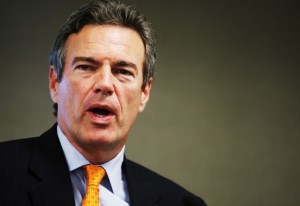In one of the most candid assessments of the direction of US energy/environmental policy, Anadarko chief James Hackett blasts the current focus on carbon dioxide reduction. (Financial Times – registration required).
The histrionic and maniacal focus on carbon dioxide is intellectually repugnant to me.
He added that it is “taking the economy into a tailspin.”
Hackett’s comments highlight the battle that the Obama administration and a Democratic-led Congress will face in outlining a new energy framework
The difficulty in changing energy policy – unlike say an equally large concern of health care policy – is the overlapping interests of the economy, the environment and national security. As to underscore the alliance between economy and energy, Hackett is not only the head of an oil company he is the Chairman of the Dallas Federal Reserve Bank.
To make policy formulation even more complicated, players with divergent views often sit in the same camp. For example, some, including New York Times columnist Thomas Friedman and Senator Richard Lugar, will argue that to improve national security we must tax oil to discourage its use and encourage the development of other energy sources. Others, like Hackett, would argue that such actions make the US less secure by reducing incentives for exploring domestic energy sources and thus making us more reliant on imports.
The Anadarko chief is coming out swinging. And he has support from other powerful players in the industry. 
He also appears to be taking a bullet from the cartridge of the National Rifle Association’s succesful strategy, that any infringement on current regulations will undermine society. Hackett isn’t going to turn into Charlton “from my cold dead hands” Heston as he has a company to run. But his comment that current US policy trends will make the US “the world’s cleanest third world country” is catchy.